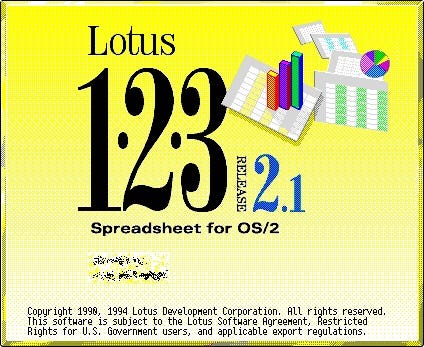Outsourced Thinking – Is AI Making Us Dumb? (Part 1)
Cognitive Offloading vs Critical Thinking

It was the beginning of my junior year in high school.
My dad held it in his hand gingerly with a sense of awe. He had just purchased the first four function calculator - the TI-2500 Datamath - for $149 (~$1,000 in 2025 dollars) – a major purchase for a notoriously frugal man.
He marveled at it - but told me it was dangerous.
“It would make us lazy and dumb - we needed to do math in our head and real engineers use slide rules”
He wasn’t anti-technology - he was worried about what scientists now call cognitive offloading.
“Take a Load Off”
Cognitive offloading is delegating mental tasks to other devices – outsourcing a part of our thinking. My uncle used to say “Take a load off”. The idea is that this frees up mental capacity to take on other, more complex tasks.
We have been doing it for thousands of years. Like my Dad, Socrates was concerned about it when writing was invented. In 370 BCE he warned:
“This discovery of yours will create forgetfulness in the learners’ souls because they will not use their memories; they will trust to the external written characters and not remember of themselves.”
It started long ago.
Ancient shepherds used stones to count their goats.
The abacus was followed by elaborate clock-like adding machines in the 1600s.
Slide rules powered the design of the Apollo missions. Buzz Aldrin took his treasured Picket N600-ES to the Moon.
Then the big revolution in 1972 with the introduction of the T-2500. Chaos ensued – calculators were banned from classrooms and engineers clutched their slide rules…. for a few years anyway
A decade later the PC, Lotus 123 and Excel arrived …. Our naïve brains quickly succumbed to the lure of macros and pivot tables.
Each step allowed us, pulled us, to offload the next layer of math so we could tackle bigger problems – you can’t do a Monte Carlo simulation on an abacus!
It is simple, subtle and seductive. Mental math isn’t the only victim. I don’t know my children’s phone numbers. Spell check has made me a sloppy speller. And I can’t get home from the store without my GPS. We have been outsourcing small bits of our cognition for a long time – one convenience and short cut at a time.
And remember the dreaded “word problems” in math class?? The ones where you had to figure out which equation to use before solving it. We had to think – context and logic -that was much harder.
Enter AI
With massively broader and deeper capabilities, AI has now drawn us into delegating not just arithmetic, but reasoning itself. With a few additional clever prompts it solves the word problems and gives is supporting data, sources, counter arguments…. In seconds. The ease and convenience is intoxicating - pulling us faster and deeper into cognitive offloading than ever before.
That’s great – it is so efficient. But it is not free - there is a cost – a real cost. We can unconsciously slip into becoming reliant and dependent on our very clever new tool.
Compelling research shows that heavy offloading diminishes our cognitive abilities – especially critical thinking skills.
It makes sense – our brains are like any other muscle. If we don’t use it we lose it. We have offloaded almost all physical exertion to modern appliances (cars, trucks, Roomba, dishwashers...) that we invented gyms just to exercise our muscles!
What are we really losing?
What are these critical thinking skills? How critical are they? Academics (and a few smug consultants) describe them as the foundation of all problem solving: interpretation, analysis, evaluation, inference and assessment.
In plain terms critical thinking is the habit asking – often subconsciously:
- Is this logical?
- Is it credible or true?
- What are the assumptions, bias or emotions influencing this?
- Why is this the case? (Why so?)
- Does this matter? What are the implications? So What?
When we solve problems the old-fashioned way - in our head - we naturally ask these questions. The “friction” of grinding toward an answer strengthens our neural circuits – much like taking the stairs instead of an elevator.
But when beautiful answers appear instantly, that “friction” disappears. We stop questioning assumptions. We lose context. Sometimes we don’t even pause to ask ourselves what problem we are actually trying to solve (Yea- This is the Right Way).
Obviously, we can’t ignore AI.
But it strikes me that this has big implications for how we work, how we raise our children, how we educate and how we train professionals.
My friend Nate Bennet recently warned that MBAs are no longer graduating with the skills employers expect. “The AI Jockey Problem: Why Your MBA Hire Might Not Know Anything”
The old “apprenticeship model” was perfected to build critical thinking skills in professional services firms. But these have withered to economic pressures over the last 40 years. AI may well finish them off..
So What Now?
How can we adapt our use of AI tools to enhance critical thinking skills instead of diminishing them?
How should we redesign our education and professional development programs to protect and enhance critical skills?
I will share some thoughts next week. In the meantime, I would love to hear your ideas.
Thanks
Walt







So this is a half baked thought, but I think that’s exactly the space that you’re kind of talking about ‘gray space’ / critical thinking and how do you round out the baking process?
What I’d love to do when there’s a gray problem to solve - in my world I’m thinking employee engagement, especially the younger generation coming into the workforce and how you build loyalty and commitment to a company and a purpose and quality. I think a good old-fashioned brainstorming session can’t be beat, but AI can be folded in thoughtfully. I visualize an in person space maybe even with an old-fashioned whiteboard where you identify the problem or I guess we should say opportunity and then individually spend time brainstorming and then come back together and talk about the pros and cons. Then I think it would be the time to pull in AI and go through a similar process of proposing the opportunity and “talking it through with AI.”
My hypothesis is this exercise continues to train/ exercise :) our critical thinking. AI I expect will give some new interesting perspective, but it could very well potentially have not surfaced some truly human centric ideas that the human group did and maybe even more so that in this process we are actually doing one of the objectives of this gray opportunity and that is creating human interaction, collaboration, and that loyalty and commitment to each other.
meanwhile, your gym analogy is also important. we have made food easy to get.. and taken the work out of the day.. people can still stay fit. just like people can still exercise thier brain... reality is people bing on the easy, tasty and entertaining - and we end up with 65% obesity.. so while there is so much that could be learned with all the current and future tech... it will mostly be for tiktok, instagram, influencer posts, chasing facebook likes, and cute cat videos... a few with mental six-packs and most with, well, friday thoughts... :-)